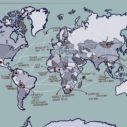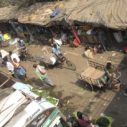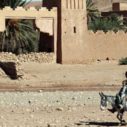
Search
Articles

Leaving no one behind: a case for disaggregating by gender, ethnicity, race and caste in the global Multidimensional Poverty Index
In 2015, the Sustainable Development Goals were established with the central theme of Leaving No One Behind. Since its inception in 2010, the global Multidimensional Poverty Index (global MPI), produced together with the Human Development Report Office of the United Nations Development Programme, has always monitored various dimensions in which the poor experience deprivations. It leaves no one behind by illuminating how people experience poverty.

OPHI Executive Education: a new journey to support leaders and policymakers in their effort to confront poverty
Over a decade ago, Sabina Alkire and James Foster developed the Alkire-Foster (AF) method, a flexible technique for measuring multidimensional poverty, inequality, and wellbeing that goes beyond one-dimensional approaches to measure poverty such as income or consumption. Since then, the AF method has been widely used by governments, development agencies, NGOs, and even the private sector to build multidimensional measures grounded in people’s experiences and values, tailored to specific contexts. These multidimensional measures have been proven to be powerful tools to design and coordinate policies, allocate resources, and target beneficiaries.

Editorial – Dimensions 12
We open this issue of Dimensions with the experience of Laura Pabón, Head of the Directorate of Social Development at the National Planning Department in Colombia, who talks with Felipe Roa Clavijo about the implementation of the Equity Roundtable. This top-level body brings together ten government entities to monitor and develop strategies for social inclusion and the reduction of poverty and inequality. We learn how the Roundtable has been a key mechanism for analysing the current crisis and coordinating mitigating policies.

Eight companies in Costa Rica receive an award for progress in poverty reduction using the business MPI
The Business Multidimensional Poverty Index (bMPI), developed by the Costa Rican Association Horizonte Positivo is used by companies to measure the multidimensional poverty of workers and their households. Using the bMPI, companies can create initiatives that go beyond income to improve the lives of their employees. In 2020, Horizonte Positivo recognized eight firms in Costa Rica for their successful implementation of the bMPI programme.

The Revised Arab MPI: Multidimensional Poverty Index for Arab countries
In December 2020, the League of Arab States Social Ministerial Council endorsed the ESCWA-proposed Revised Arab MPI framework as a formal tool for monitoring and tracking multidimensional poverty, and the basis for the second interagency report on multidimensional poverty in Arab countries. This article briefly reviews the process that led to its formal adoption, the structure of the index, and the profile of poverty in Arab countries according to this index.












